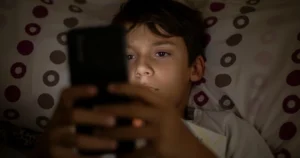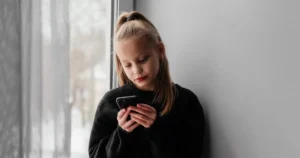
Karl Hopwood
Online safety expertKarl Hopwood is an independent online safety expert. He is a member of UKCIS (UK Council for Internet Safety) and sits on the UKCIS evidence group, education working group and the early warning group as well as on the advisory board for the UK Safer Internet Centre. He also sits on the Roblox trust and safety board where he represents the Insafe network. He was part of an expert steering group with TikTok looking at harmful and dangerous online challenges and regularly contributes to content for Internet Matters, recently delivering their online safety training for those working with children in care commissioned by Ofcom.
Karl has worked for a number of key players in the UK and abroad including CEOP (Child Exploitation and Online Protection Centre), BECTA (British Educational and Communications Technology Agency), the European Commission, the UN and several Local Authorities within the UK and in Europe.
As an ex primary headteacher, he continues to work closely in schools across Europe with children, young people, parents, teachers and governors to develop safer online behaviours and the promotion of digital literacy. Karl has been employed for the last 18 years as an in-house consultant for INSAFE which is the coordinating node of the EU Better Internet for Kids programme where he is responsible for the coordination of safer internet helplines and awareness centres across Europe. Karl was the Chair of the Board of Trustees of the Marie Collins Foundation for 7 years, a charity which supports young people who have been sexually abused and exploited online and is now Chair of the board of trustees of Childnet international and Chair of the executive committee of SACPA (Safeguarding and Child Protection Association). Karl has also worked with the International Telecommunications Union (ITU) and chaired the working group to re-write their Child Online Protection Guidance.
 Q&A
Q&A
How to safely support young people’s interest in online activism
See how you can safely support young people with online activism in this article from experts.
 Q&A
Q&A
How do cookies and algorithms impact children’s privacy online?
Experts share advice around managing cookies, algorithms and consent to help keep children safe online.
 Q&A
Q&A
What can parents learn from the ‘Adolescence’ series on Netflix?
Experts share tips to help parents navigate discussions about ‘Adolescence’ on Netflix.
 Q&A
Q&A
How to tackle online scams
Our expert panel shares advice on how to identify and tackle online scams, including how young people might be impacted on social media and in games.
 Q&A
Q&A
How might tech affect feelings of loneliness in young people?
Our expert panel discusses the impacts of online tech on children and young people, especially how it may affect feelings of loneliness.
 Q&A
Q&A
Helping children with SEND manage and understand misinformation
Our expert panel shares their thoughts and advice on how to help children with SEND navigate misinformation online.
 Q&A
Q&A
How to help children communicate appropriately online
Socialising with become a large part of online gaming and social media. Our expert panel has support for your child’s communication with others online.
 Q&A
Q&A
Is a digital detox good for your family?
Internet Matters’ experts share their thoughts on digital detoxes. Is it necessary to do one? And if you do, what’s the best way to go about it?
 Q&A
Q&A
Supporting the positive treatment of teachers online
Experts explain how teachers are targeted in online spaces.
 Q&A
Q&A
How to encourage children to report cyberbullying among friends
Experts Alan Mackenzie and Karl Hopwood weigh in on how parents can support their children if they are being cyberbullied among friends.
 Q&A
Q&A
How can you help children deal with social media anxiety?
Our expert panel weighs in on helping children deal with FOMO, the pressure to post, and other anxieties associated with social media.
 Q&A
Q&A
What does the Age-Appropriate Design Code mean for my child?
The Age-Appropriate Design Code has 15 standards that online services must follow but what does this mean for your child’s online safety?
 Q&A
Q&A
How to help children develop good online money management?
Internet Matters expert panel share their thoughts about how to help children think more critically about how to manage money online.
 Q&A
Q&A
How can I help my child have a safer digital Christmas?
Get advice from online safety experts to help children use new digital Christmas gifts safely.
 Q&A
Q&A
Socialising online safety advice for younger children
Get advice on supporting good habits when it comes to socialising online.
 eSafety news
eSafety news
Zoombombing – what you need to know about this to protect your family
Online safety expert Karl Hopwood sheds light on what zoombombing is and how you can better manage your family experience on zoom and other video conferencing apps.
 Q&A
Q&A
Conversations to have with teens about nudes & sexting
There has been a rise in people using video-streaming apps and sites to sell their nudes or sexually suggestive content. With concerns raised about how social media and tech play a role in teens sharing images, our Internet Matters expert panel provides their advice on teens and sexting, sending, and sharing nudes.
